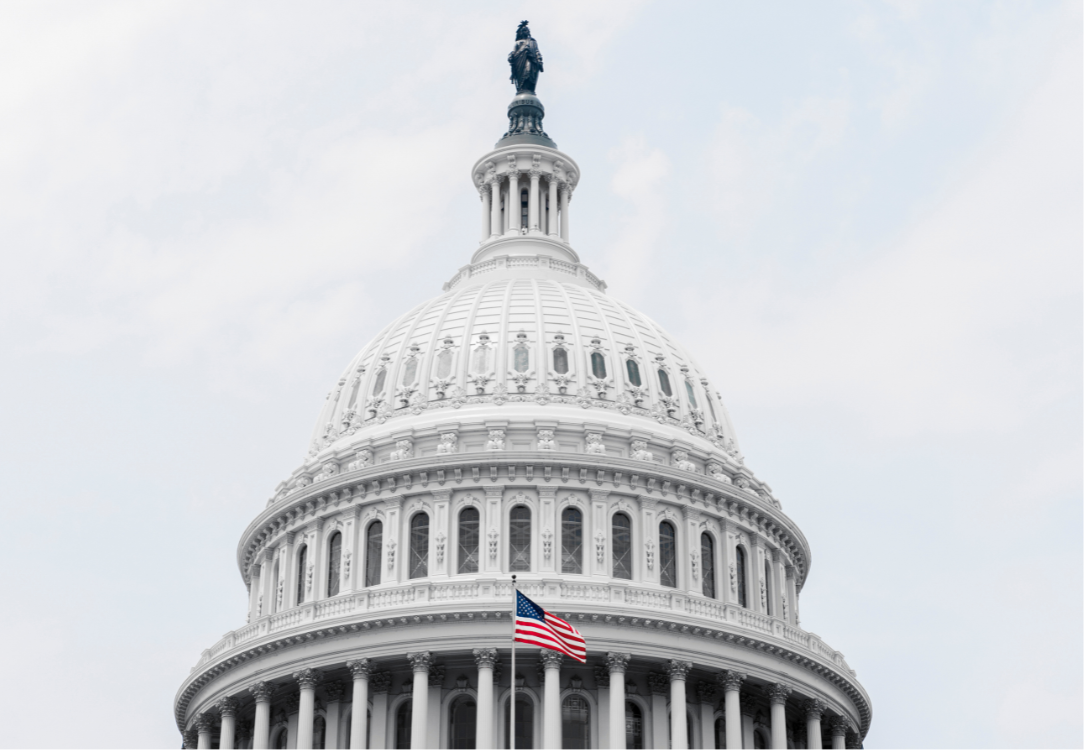The month of May again brought relatively little major employee benefit compliance guidance from federal agencies. However, there was plenty of activity in the courts to provide useful insight into steps employer plan sponsors can take to safeguard against benefits litigation.
DEPARTMENT OF LABOR PROVIDES MENTAL HEALTH CONDITION GUIDANCE UNDER FMLA
The U.S. Department of Labor (DOL) released Fact Sheet #280 as well as Frequently Asked Questions (FAQs) about how the Family and Medical Leave Act of 1993 (FMLA) accommodates mental health-related leaves. The DOL’s Wage and Hour Division issued the guidance as part of Mental Health Awareness Month to provide employers additional information on how to handle leave requests for mental health concerns. Among the notable provisions in the guidance – especially given the ongoing COVID-19 pandemic, incidents of gun violence, and news regarding the economy – is a reminder that an FMLA-eligible individual working for an employer subject to FMLA may take covered leave due to anxiety. The Fact Sheet states that a chronic mental condition like anxiety is a covered serious health condition for FMLA when it causes an individual to be unable to work, requires treatment by a health care provider at least twice a year, and recurs over an extended period. Additionally, the FAQs remind covered employers that eligible employees can take FMLA leave to assist an adult child who cannot work and is incapable of self-care because of an ADA-defined disability like major depressive disorder. An employee in this case may take FMLA leave to assist the adult child with daily activities including cooking, cleaning, and shopping.
USERRA LEAVE: PRACTICAL STEPS TO AVOID COSTLY LITIGATION
Two major class action suits regarding alleged employer violations of the Uniformed Services Employment and Reemployment Rights Act (USERRA) gained approval from two federal courts in Washington and Georgia.
In one case, a group of servicemember employees alleges that its employer failed to provide paid USERRA leave for short periods of qualifying service in the Army Reserve despite offering paid leave in other circumstances like jury duty and sick leave. The employer in question could be liable for back pay and be required to pay employees for this type of USERRA leave going forward.
In the other case, an employer purportedly denied paid leave benefits to servicemember employees for short leaves of absence for service with the National Guard and Air Force Reserve. In that case, the court rejected the employer’s argument that USERRA does not require paying reservists while on leave. The court pointed to appellate opinions in which other courts held that leave pay was a right protected by USERRA which requires covered servicemembers to have the same rights and benefits for military leave as employers provide to employees for other types of leave.
Employers should take time to review USERAA leave policies and procedures in light of these class action suits. Further, it’s a good time to review group health plan policies and procedures for compliance with the continuation requirements provided servicemembers under USERRA.
ALABAMA GOVERNOR TIGHTENS TELEMEDICINE RESTRICTIONS
Governor Kay Ivey recently signed SB 272 into law, paving the way to place further limits on the way telemedicine services may be delivered to Alabama residents. Existing law had created a special purpose license exception for telehealth that permitted doctors and practitioners who are unlicensed in Alabama to provide medical services across state lines in Alabama. Effective as of July 11, 2022, the special purpose license will no longer be valid. The law will require any physician who provides telehealth services (e.g., digital health, telehealth, telemedicine, and the technologies and devices used to deliver such services) to be licensed in Alabama or have a license through the Interstate Medical Licensure Compact unless the physician provides services on fewer than 10 calendar days per year to fewer than 10 patients per calendar year. Subject to forthcoming rules and regulations, employers who offer telehealth services to Alabama employees might need to communicate to affected employees that they might have to seek telehealth services from an in-state provider in order to be covered under their employer-provided group health plan if it typically would exclude coverage for services that are not legal in a particular jurisdiction.
PLAN BENEFIT DENIAL NOTICES MUST SPECIFY LIMITATIONS PERIODS FOR LAWSUITS
A federal court in Utah recently issued opinions in two similar cases holding that a group health plan could not impose a restriction on the time period for bringing a lawsuit for plan benefits because the plan did not also clearly disclose the time limit in its claim denial communication. The plaintiffs in both cases successfully argued that ERISA’s claims procedure regulations impose on group health plans a duty to include any specific limitation on filing a lawsuit for benefits in the claim denial notice. The court interpreted the claims regulation language that requires any denial notice to describe “the time limits applicable to such procedures, including a statement of the claimant’s right to bring a civil action” to mean that a denial notice must clearly state any limit on bringing a lawsuit. Plan sponsors who want to limit their exposure to multiple different limitations periods should carefully review claims denial letters and communication to ensure that any limit included in a plan document is also in the denial.
DEPARTMENTS HIGHLIGHT MENTAL HEALTH PARITY CONCERNS IN ANNUAL REPORT TO CONGRESS
The U.S. Departments of Labor (DOL), Health & Human Services (HHS) and the Treasury (collectively, the Departments) recently issued their joint 2022 Mental Health Parity and Addiction Equity Act (MHPAEA) Report to Congress (Report). The Report announces that the Employee Benefits Security Administration (EBSA) and HHS are committed to using all their available authority to rigorously enforce the MHPAEA and will dedicate significant resources to strengthening enforcement. The Report urges Congress to:
- Grant the DOL the authority to assess civil monetary penalties for mental health/substance use disorder (MH/SUD) parity violations.
- Give the DOL the authority to directly pursue parity violations by entities that provide administrative services to ERISA group health plans.
- Provide that participants and beneficiaries, as well as the DOL, may recover amounts lost due to improper claims denials that violate the MHPAEA.
The Report also indicates that the EBSA has issued 156 letters requesting written analyses of non-quantitative treatment limitations (NQTL analysis). The MHPAEA requires a group health plan sponsor to run an NQTL analysis, and the Report notes that none of the NQTL analyses reviewed to date have contained all required information. The DOL noted that it will be looking for the following common errors in future examinations:
- Failure to document comparative analysis before designing and applying the NQTL
- Conclusory assertions lacking specific supporting evidence or detailed explanation
- Lack of meaningful comparison or meaningful analysis
- Non-responsive comparative analysis
- Documents provided without adequate explanation
- Failure to identify the specific MH/SUD and medical/surgical benefits or MHPAEA benefit classification affected by an NQTL
- Limiting the scope of analysis to only a portion of the NQTL at issue
- Failure to demonstrate compliance of an NQTL as applied
The DOL is stepping up its enforcement and review of the MHPAEA including NQTL analyses. Employer plan sponsors should review their NQTL analyses to address these common deficiencies.
IRS ISSUES GUIDANCE TO EMPLOYERS OFFERING LEAVE-BASED DONATION PROGRAM TO ASSIST UKRAINIAN VICTIMS
The Russo-Ukraine war continues to rage, creating burdens on employees with close ties to Ukraine. Some employers have responded by adopting employer leave-based donation programs to aid citizens and residents of Ukraine; individuals working, traveling, or currently present in Ukraine; or refugees from Ukraine. IRS Notice 2022-28 provides guidance on the federal income and employment tax treatment of cash payments made by employers under leave-based donation programs to aid victims of the Russian invasion of Ukraine.
Under employer leave-based donation programs, employees can elect to forgo vacation, sick, or personal leave in exchange for their employers making cash payments to charitable organizations described in section 170(c) of the Internal Revenue Code (Code). Employer leave-based donation payments made by an employer before January 1, 2023, to section 170(c) organizations to aid victims of the Russian invasion of Ukraine will not be treated as gross income or wages (or compensation, as applicable) of the employees of the employer. Similarly, employees electing or with an opportunity to elect to forgo leave to fund qualified employer leave-based donation payments will not be treated as having constructively received gross income or wages or compensation. Employers should not include the amount of qualified employer leave-based donation payments in Box 1, 3 (if applicable), or 5 of the electing employees’ Form W-2. An employer may deduct qualified employer leave-based donation payments under applicable rules.



